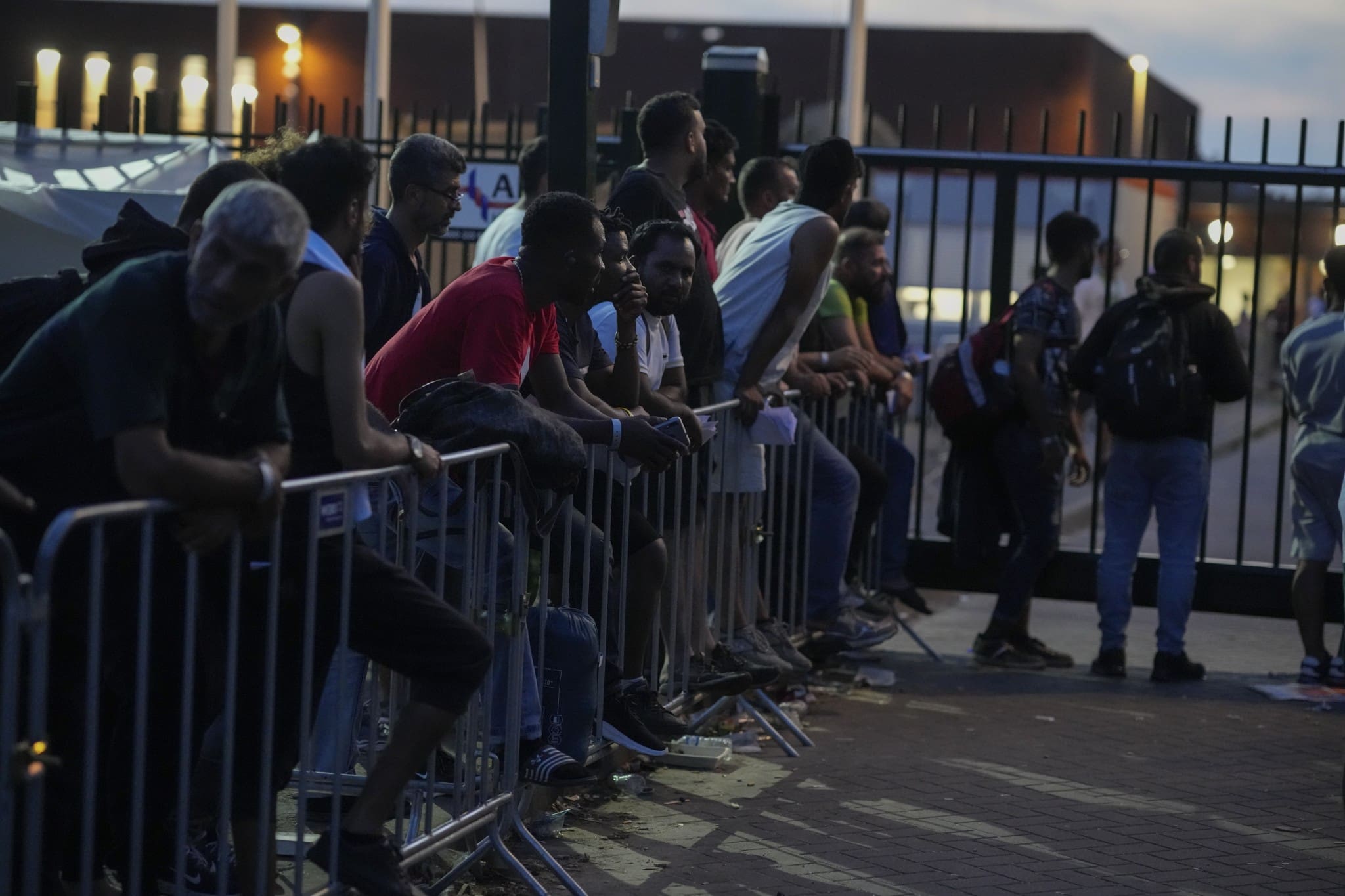The outgoing Dutch government has already requested an extra €600 million to be allocated to the country’s asylum budget for 2024, warning the initial budget is insufficient to cater to the influx of new arrivals.
A memorandum of amendment filed on Friday by Justice Minister Dilan Yeşilgöz’s department notified of the need for “extra budgetary space… for the reception of asylum seekers,” despite current spending on the Dutch asylum policy being at record levels.
More than €4 billion has been reserved to provide hospitality for asylum seekers this year, while €3.2 billion is allocated to accommodate Ukrainian refugees — a total of more than €7.2 billion.
Although a further €600 million is currently being sought, a justice ministry spokesperson confirmed to Dutch media that further funding may be requested later in the year.
The extra financing is expected to fund emergency accommodation arranged by the Central Agency for the Reception of Asylum Seekers (COA).
Emergency accommodation with private contractors is still being heavily relied upon by the Dutch government despite pledges that such contracts would be temporary and asylum seekers would be moved into government-run, semi-permanent housing.
Hoteliers and cruise ship operators continue to enjoy lucrative contracts with the government, and public spending is spiraling — a significant factor in why an increasingly disillusioned electorate backed Geert Wilders’ right-wing Party for Freedom (PVV) as the country’s largest political party in November last year.
[pp id=82519]
The Dutch government has a habit of either under-budgeting or overspending — depending on how you look at it — on its asylum policy.
In January last year, a damning Court of Audit report revealed that the government had spent significantly more than it had initially budgeted on asylum center funding in 21 of the last 23 years.
[pp id=63045]
The electoral victory of Wilders could put an end to the exorbitant public spending on asylum measures should he manage to succeed in coalition talks and form a right-wing government intent on fulfilling his pledge to reduce the number of asylum applications in the Netherlands.
Commenting on the request for even more asylum funding less than a month into the new year, Wilders blamed the inflated budget on “years of mismanagement” that previous liberal administrations should “be ashamed of.”
“They have completely given away and demolished our country,” he added.
Despite the initial budget, there are many other hidden costs to the Dutch taxpayer for adopting a liberal approach to mass immigration. As outlined in a University of Amsterdam study published last month, the net cost of immigration to the Dutch public sector over the period 1995-2019 was €400 billion – averaging €17 billion a year with a peak of €32 billion during the 2015 migrant crisis.
[pp id=100840]
The study factored in additional costs not covered in the asylum budget including long-term social security, welfare benefits, and education.
The research suggested that migrants from Turkey and Morocco — from where a significant percentage of new arrivals into the Netherlands originate — had the highest negative net contribution to the Dutch treasury, costing the Dutch people during an average lifetime €200,000 and €260,000, respectively.






